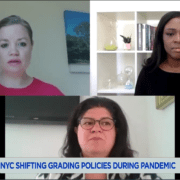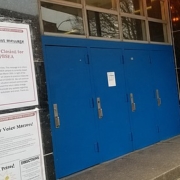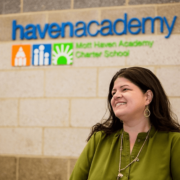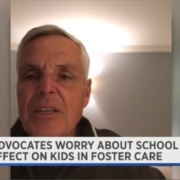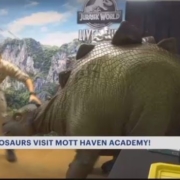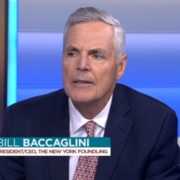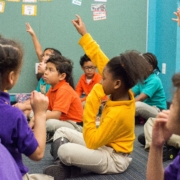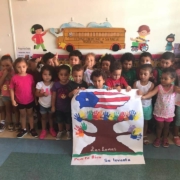Remote learning is taking a toll on students as they navigate a new way of staying connected to their teachers, friends, classmates, and lesson plans from home. Jessica Nauiokas, Head of School at Haven Academy, discusses how our Haven scholars are receiving guidance from staff on navigating these difficult times, including virtual mental health counseling, speech therapy sessions, and more.
New York City Public Schools Chancellor Richard Carranza said recently that “learning will continue” as schools remain closed due to COVID-19… However, some politicians and education advocates say the learning never started.
Our President and CEO, Bill Baccaglini, discussed his concerns with New York Amsterdam News. He fears that the children in foster care will miss out on one-third of a school year’s education.
“I have kids in foster care who are going to be high school juniors in foster care, unlike kids on the Upper East Side and Upper West Side whose parents are going to make sure that they have what they need before they go back to school in the fall. Who’s going to help my kids catch up?” he says.
Read more on New York Amsterdam News (pdf)
A school located in one of the poorest Congressional districts in the nation has made a smooth transition to virtual learning. Since shuttering its doors on March 13, Mott Haven Academy Charter School has managed to successfully provide quality remote learning education to its students amidst the COVID-19 crisis.
“I’ve been so impressed with the creativity for our students and the creativity of Haven’s teaching team,” said Mott Haven’s Head of School and Founder Jessica Nauiokas.
While closing schools is necessary to prevent the spread of COVID-19, our President and CEO Bill Baccaglini is concerned that remote learning will cause students – particularly those in the child welfare system – to fall behind.
“Even on the best day, this remote virtual learning is not what being in a classroom is,” our President and CEO Bill Baccaglini told Spectrum News. He advocates one-on-one summer tutoring to help students close the gap. “Make the investment now, because if you don’t make the investment now in these young people, these are the young people who are going to find themselves in adult systems that they just may never get out of,” says Baccaglini.
Bill Baccaglini, our President and CEO, appeared on CBS New York to discuss his concerns – and propose potential solutions – on the impact that COVID-related school closures will have on students in foster care. “If we don’t invest now and we allow them out without a high school degree, and no college degree, these are young people who are more likely than other kids to wind up in an adult system which they may never get out of,” he said.
In the 12 years since Mott Haven Academy opened its doors in the South Bronx, our school has been guided by a spirit of deep empathy and defined by the never-give-up attitude of our staff and students.
That caring and resilience have been especially evident in the weeks since we closed on March 13.
Students at one Bronx school got a blast from the past Tuesday. The Jurassic World Live tour stopped by Mott Haven Academy to teach students how prehistoric times impact the modern world.
The tour featured Olive, a life-sized baby stegosaurus who let students have a hands-on learning experience. Principal Ashlyn Field says it’s part of a district initiative to add more science into the students’ curriculum. “We a few years ago decided that we don’t have enough science in our curriculum, so we overhauled K to 5 and added a lot of science into it and so students a learning about pushes and pulls and forces and plants and animals and survival,” says Field.
New York Foundling President & CEO Bill Baccaglini appeared on Spectrum News NY1’s In Focus to discuss The Foundling’s work in Puerto Rico, and what is needed to provide stability and support within the communities that are most impacted by the ongoing earthquakes.
The Foundling has been providing Head Start and Early Head Start programs on the island for decades, providing vital support to 1,500 children and families on the island. Joined by Luis Miranda, Founding Partner of The MirRam Group and a leading voice for NYC’s Hispanic community, and Frances Lucerna, Co-founder and Executive Director of the NYC/Puerto Rico-based non-profit El Puente, Mr. Baccaglini discusses the mental health services we’re committed to providing as we look ahead, how children and families in the regions most impacted by the earthquakes are doing, and what needs to be done in terms of rebuilding Puerto Rico’s infrastructure and communities.
Nationally, as many as 3 out of 5 students enter school below grade level. The numbers are even higher for low-income students and children of color. To address this problem, some educators and policymakers advocate for more access to higher-quality instructional materials — grade-appropriate curriculum and content that are standards-aligned, coherent and easy for teachers and students to use.
Others argue that personalization — which strives to give students more choice over their learning, access to a variety of content based on interests and needs, and flexible pacing, all driven by continuous use of data to inform instructional decisions and often using technology — is the key to postsecondary success. However, personalized learning alone does not dramatically improve student learning outcomes. Swapping one curriculum out for another is also not a panacea, especially without ongoing professional learning supports for teachers.
Given that neither of these approaches — more access to grade-level content or to personalized strategies — is enough to help students who are behind, what is the answer? The key is to do both.
Some schools, usually new or existing schools that want to avoid multiple implementation cycles, roll out a high-quality curriculum and personalization at the same time. Mott Haven Academy Charter School, a pre-K-8 school in New York City that serves foster children and students in the child-welfare system, decided on this approach after years of seeing English Language Arts test scores hovering around the state average — a comparatively strong performance for a vulnerable student population, but below the school’s big goals.
On Tuesday, a 6.4 magnitude earthquake struck Puerto Rico leveling buildings, destroying roads and infrastructure, and causing a massive power outage across the island. Despite the conditions and wreckage, our dedicated and determined Head Start and Early Head Start staff won’t back down. They are visiting families, assessing damage and immediate needs, and doing everything they can to comfort and support not only the kids, but parents, family members and the entire community.

